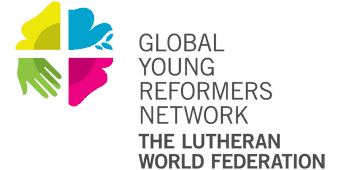Don’t let anyone look down on you because you are young...

Don’t let anyone look down on you because you are young, but set an example for the believers in speech, in conduct, in love, in faith, and in purity. Until I come, devote yourself to the public reading of Scripture, to preaching and to teaching. Do not neglect your gift, which was given you through prophecy when the body of elders laid their hands on you. (Timothy 4:12-14)
I am Ditebogo Lebea, a self-proclaimed youth activist currently representing the Lutheran World Federation at this eventful COP of implementation. I would like to share about what climate justice means from a youth perspective.
Firstly, let me define what “climate justice” means. The Mary Robinson Foundation defines climate justice as a means of linking human rights and development to achieve a human-centered approach, safeguarding the rights of the most vulnerable people and sharing the burdens and benefits of climate change and it impacts equitably and fairly. It is basically the idea that Climate justice is intersectional; it is not only an environmental issue but it is also an ethical and political issue. It is thus imperative that all who every citizen plays their part in ensuring that climate change is controlled and mitigated in the best way possible in order to ensure that the rights of victims and the most vulnerable people are not infringed on.
It is also imperative to take note that you cannot talk about climate injustice without mentioning intergenerational justice. This is the belief that each generation owes it to the next generation to ensure that life on earth is sustainable. It is about each generation leaving the earth the way or in a much better condition than what they found it.
Today we find that youth are leading with regards to climate change. You will not come across something regarding climate change without there being youth involvement on one way or the other.
What the youth within the LWF have managed to do was appeal to its own organization to divest from fossil fuels as well as to reduce carbon emission. Both these suggestions have successfully been implemented which has seen a shift in member churches transitioning from non-renewable ways to get energy to receiving energy from renewable resources.
Moreover, around the world, more youth have started capacity building projects such as tree planting projects in areas such as Congo, vegetable gardens in South Africa and Solar cookers in Mauritania. And this is only to name a few. There are more projects in Africa as well as in other continents. More have been implemented and more are yet to come.
We are not done.
Ms Caroline Ditebogo Lebea is a youth leader and young Reformer in the Evangelical Lutheran Church in Southern Africa-NT, where she is also engaged in projects raising awareness about environmental conservation. This is the first time that the 19-year-old is taking part in a COP as a member of the LWF delegation.
